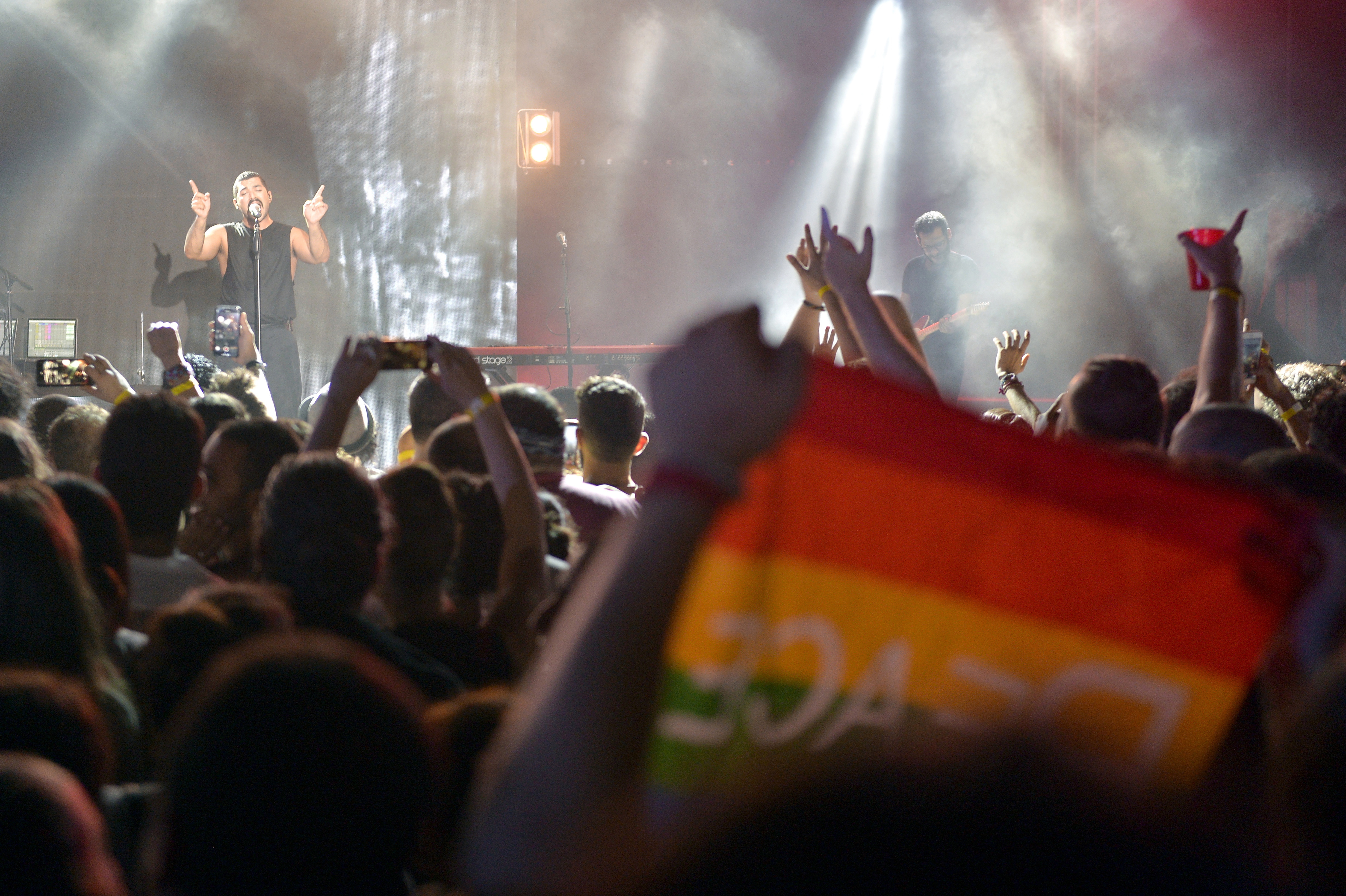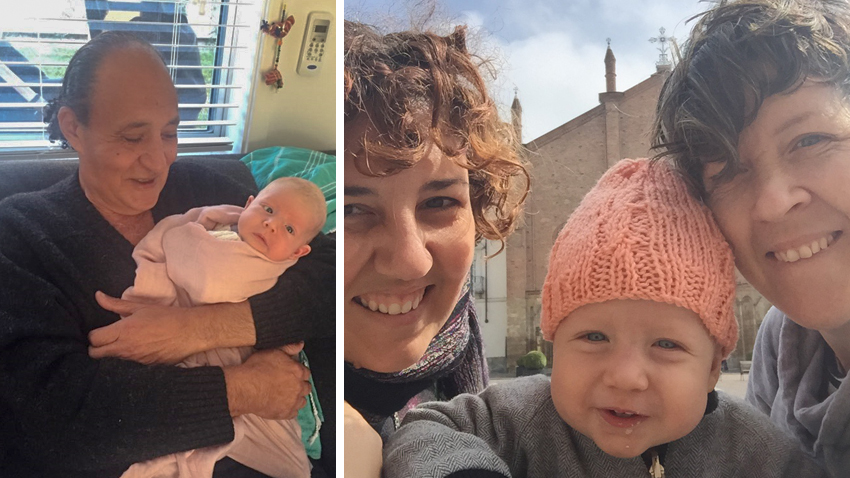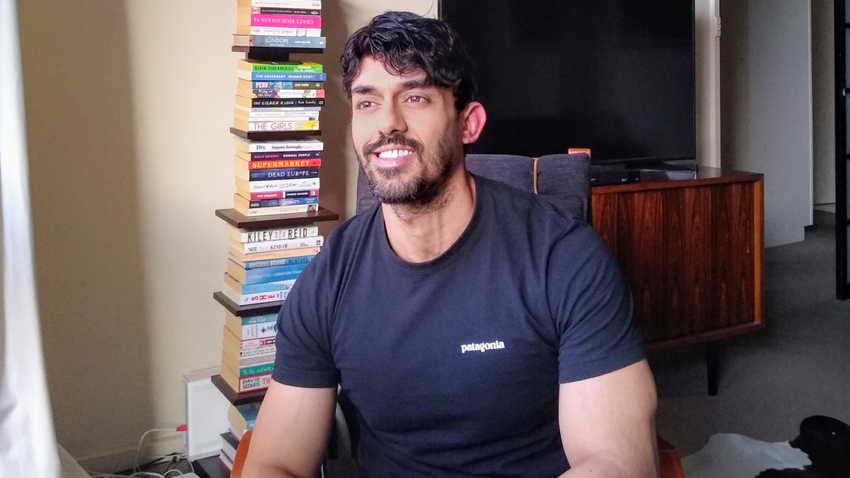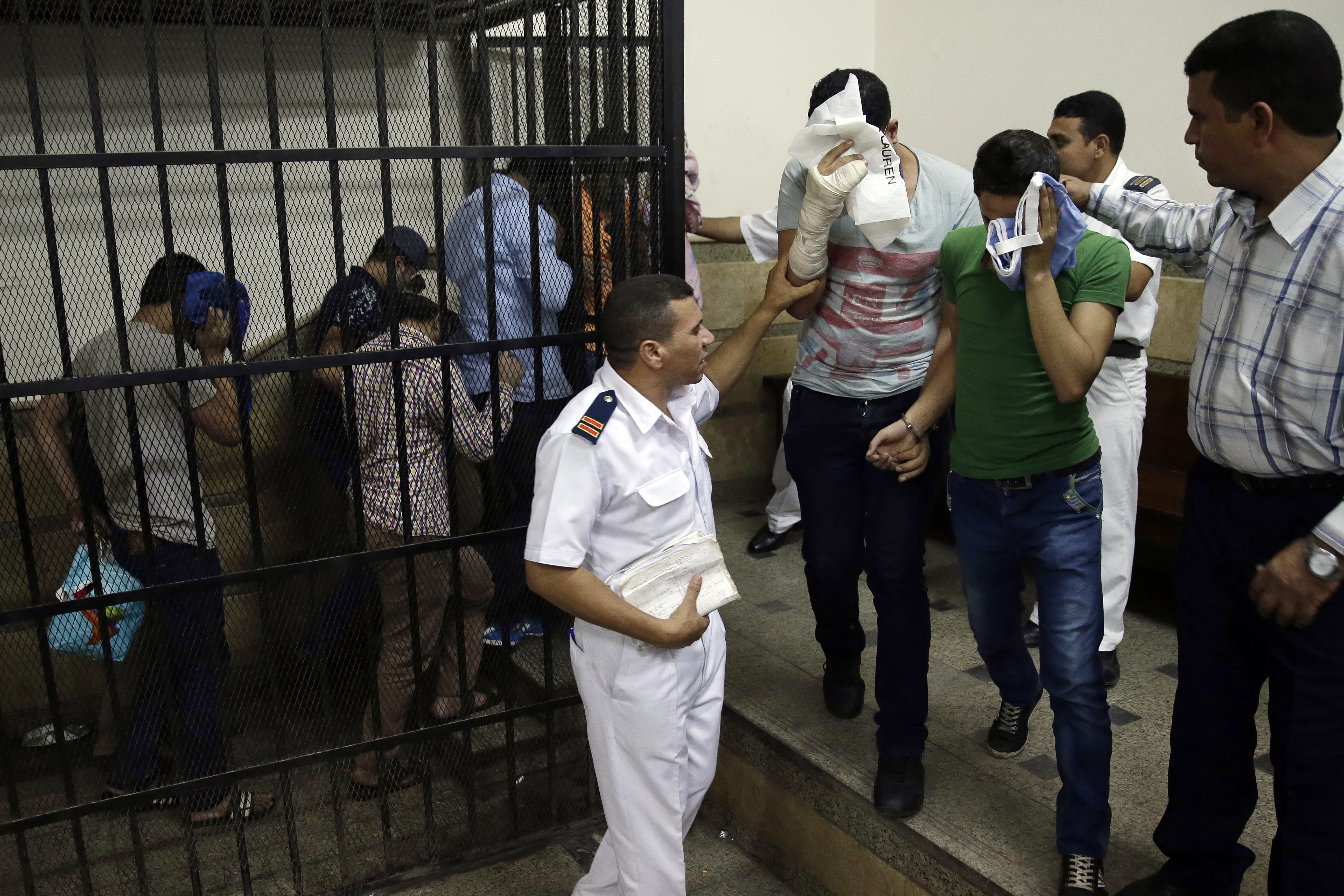The 30-year-old was found dead in Canada, where she had settled after claiming asylum following her release from an Egyptian jail in 2017.
Her death by suicide has led to an outpouring of emotion on social media.
Hegazi's troubles began when she was arrested along with 75 others during a Cairo summer concert in 2017, where she hoisted aloft her own rainbow flag, a moment captured on a friend's camera.
A storm of outrage erupted on social media and on Egyptian TV over the flags at the event and police raids followed.
Hegazi was accused of "inciting debauchery” and was sent to a detention centre, where she was held for three months and allegedly tortured before a court released her on bail.
Although homosexuality is not technically illegal in Egypt, gay people are subjected to societal prejudices and are frequently prosecuted by the country's police.

Fans of the Lebanese group Mashrou Leila waved rainbow flags at their concert in Cairo in 2017. This was followed by the arrest of 75 people. Source: AAP
‘Sense of loss’
From Newcastle, Australia, Samara Shehata tells SBS Arabic24 that she felt extremely dismayed after hearing of Hijazi's death.
"My feelings straight away are mixed with grief, a sense of loss of someone from our community, who experienced a lot of pain,” the daughter of Egyptian migrants said.
“We feel the pain of the injustice of her experiences being tortured."
Shehata, a gay woman that works as a community officer for advocacy group ACON, believes that she shared many commonalities with Hegazi.
She has a son from her partner who she's named “Cairo” after the name of the Egyptian capital where Hegazi lived for most of her life.
"Sometimes I get the feeling that could be me. If my family didn’t migrate, or if my parents didn’t migrate, could that have been my life? I have been Sarah," Shehata said. Gay Australian Palestinian man Rami Ghattas, who lives in Melbourne, says he felt a number of emotions when he heard of Hegazi's death.
Gay Australian Palestinian man Rami Ghattas, who lives in Melbourne, says he felt a number of emotions when he heard of Hegazi's death.

Egyptian migrant to Australia Samir Shehata (L) carrying his grandson Cairo, the son of his daughter Samara Shehata (Middle) and her partner Rebecca Stegh. Source: Supplied
“I was confused, I felt anger and sadness. This is a person’s life who had friends and family. All that was taken away from her in a second because she raised a flag."
Ghattas immigrated to Australia nine years ago in order to be able to “live my life without fear”. He grew up in the UAE, a country which criminalises same-sex marriage, and was forced to conceal his sexual identity.
He grew up in the UAE, a country which criminalises same-sex marriage, and was forced to conceal his sexual identity.

He moved to Australia from the UAE so he can live his life as a gay man without fear. Source: Supplied
"Gay people live a terrible life in the Arab world. They live a double life all the time, always in fear of being seen or heard.
“Gays or transsexuals in the Arab world are fighting all the time. They go out of their house in fear for their lives.”
He joined the Helm Group in Melbourne, which works to provide a safe environment for members of the LGBTQI+ community.

In 2014, eight Egyptian men were convicted for "inciting debauchery" following their appearance in a video of an alleged same-sex wedding. Source: AP
The state of the LGBTQI community in the Arab World
According to a report by Human Rights Watch: “Laws across the region are far from uniform, although in most countries, same-sex acts between consenting adults in private are treated as a criminal offence.”
The situation is just as bleak in Egypt, explains SBS Arabic24 Cairo correspondent Mohamed El Shazly.
“Homosexuality is not recognized in Egypt. Those who commit it are arrested, interrogated, and they will appear in front of a court. They will be accused of ‘incitement to debauchery and homosexuality’.
“Homosexuals are treated as outlaws [in Egypt]. The idea of homosexuality is treated as a religious taboo and an act against the law."
Ghattas advises gay men and women in the Arab world to be cautious.
"They have to be careful. Change happens slowly and meanwhile, they must be careful. They live under governments that do not recognise them and the laws don’t protect them .. so try to support each other.”
Readers seeking support and information about suicide prevention can contact Lifeline on 13 11 14, Suicide Call Back Service on 1300 659 467 and Kids Helpline on 1800 55 1800 (up to age 25).
More information about mental health is available at Beyond Blue.
To find out more about becoming a telephone volunteer, contact your local Lifeline centre.
